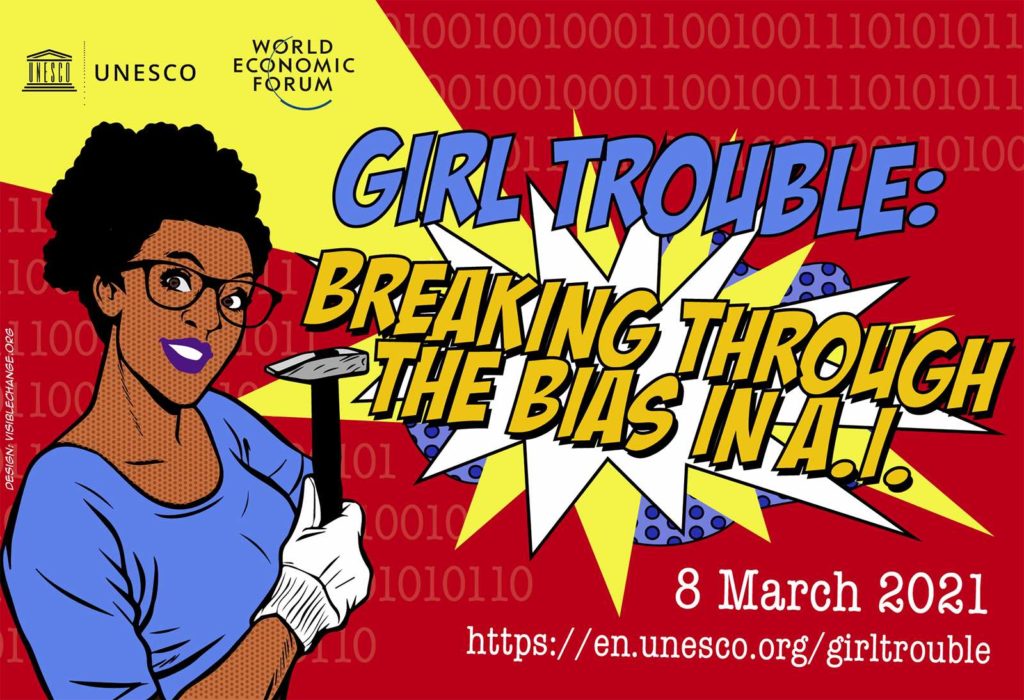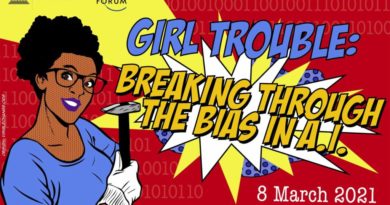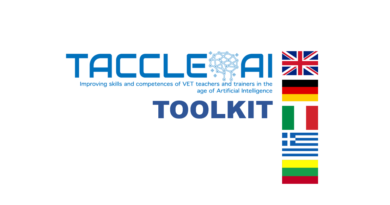Breaking through the Bias in AI

UNESCO say there is an urgent need for more women to participate in and lead the design, development, and deployment of AI systems. Evidence shows, they continue, that by 2022, 85% of AI projects will deliver erroneous outcomes due to bias.
AI Recruiters searching for female AI specialists online just cannot find them. Companies hiring experts for AI and data science jobs estimate fewer than 1 per cent of the applications they receive come from women. Women and girls are 4 times less likely to know how to programme computers, and 13 times less likely to file for technology patent. They are also less likely to occupy leadership positions in tech companies.
On March 8, UNESCO and the World Economic Forum presented a Round Table entitled Girl Trouble: Breaking Through The Bias in AI. The built on UNESCO’s cutting edge research in this field, and the flagship 2019 publication “I’d Blush if I Could”, and policy guidance on gender equality in the 2020 UNESCO Draft Recommendation on the Ethics of Artificial Intelligence. The panel will looked at:
- The 4th industrial revolution is on our doorstop, and gender equality risks being set back decades; What more can we do to attract more women to design jobs in AI, and to support them to take their seats on the boards of tech companies.
- How can AI help us advance women and girls' rights in society? And how can we solve the problem of algorithmic gender bias in AI systems?If
If, like me, you missed the event in March you can catch up on YouTube below.



 There's an interesting article today in WONKHE, the UK online higher education newspaper.
There's an interesting article today in WONKHE, the UK online higher education newspaper. 